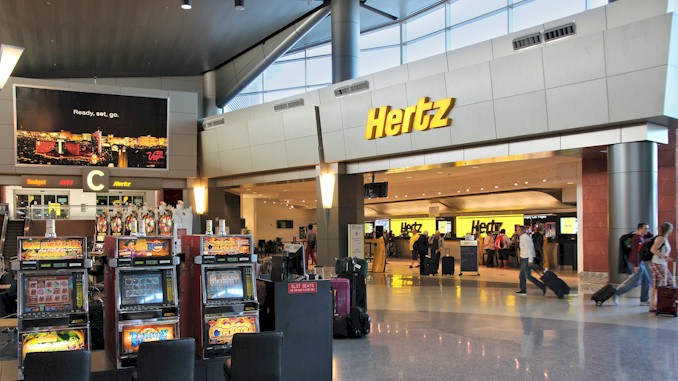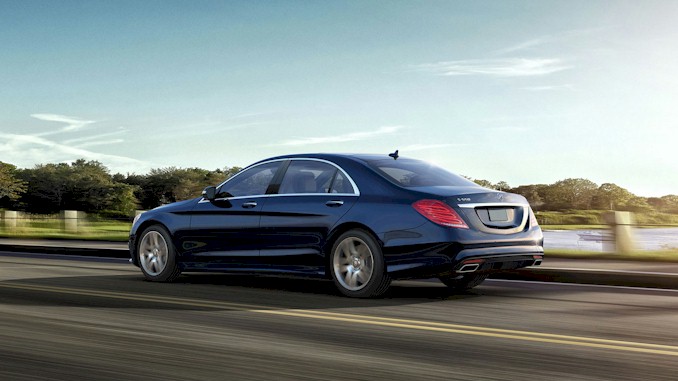Discover A New Way of Rental Car: Turo. Here Is What You Should Know.
The last time I searched online for an ideal rental car, I ran into a name I had never heard before: Turo. After I encountered the name a few times, I decided to find out what it was. That was when I knew there was a new way to rent a car. It seems the new way is cheaper than the traditional way. So I spent a lot of time searching and learning more about it. This post is what I have learned during my research.
Turo is a new way of rental car that allows users to rent cars from other individuals instead of from companies. Turo operates as an online marketplace where car owners can list their vehicles and set their own prices and availability. Users can browse and book cars in their desired location and category, and pay securely through the app or website. Turo provides insurance and roadside assistance for both parties, and handles customer service and dispute resolution.
You might be wondering why you should use Turo instead of a traditional rental car agency. What are the advantages and disadvantages of Turo? How can you find the best deals and avoid scams? In the following sections, I will explain everything you need to know about Turo, based on my personal research. I will also share with you some practical tips and advice on how to use Turo safely and efficiently. Whether you are a traveler or a car owner, you will find valuable information in this blog post. So don’t stop reading, because I have a lot more to share with you.
What is Turo and how does it work?
Turo is a peer-to-peer car sharing platform that allows you to rent cars from local owners, often at lower prices than traditional rental agencies. Turo operates as an online marketplace where car owners can list their vehicles and set their own prices and availability. Users can browse and book cars in their desired location and category, and pay securely through the app or website. Turo provides insurance and roadside assistance for both parties, and handles customer service and dispute resolution.
Turo was founded in 2009 as RelayRides, and rebranded as Turo in 2015. Since then, it has grown to become one of the largest car sharing platforms in the world, with over 14 million members and over 450,000 vehicles listed across its service areas. Turo operates in the US, Canada, the UK, Germany, and Spain, and plans to expand to more countries in the future.
Turo offers a variety of cars for different needs and preferences, from economy to luxury, from classic to exotic. You can find anything from a Toyota Prius to a Tesla Model S, from a Ford Fiesta to a Ferrari 488, from a Volkswagen Beetle to a Lamborghini Huracan. You can also filter your search by features such as transmission type, fuel type, mileage limit, delivery options, and more.
Turo is not only a convenient and affordable way to rent a car, but also a way to make money by renting out your own car. According to Turo’s Carculator, you can earn an average annual income of $8,717 by renting out a Kia Rio on Turo, which is equivalent to a 189.7% annualized return on investment (ROI). Of course, your earnings will depend on your car’s value, availability, demand, and market seasonality in your area.
Turo is also a way to connect with other car enthusiasts and share your passion for driving. You can read reviews and ratings from other users, chat with the owners before booking, and get personalized recommendations and tips from them. You can also join Turo’s community events and meetups, where you can network with other hosts and guests, learn from experts, and have fun.
Turo is a new way of rental car that gives you more choice, flexibility, and savings than traditional rental car agencies. It also gives you an opportunity to earn extra income by sharing your car with others. It is a platform that empowers people to share their cars and their stories with each other.
How much does Turo cost?
The cost of renting a car on Turo depends on several factors, such as the type of car, the location, the duration, the demand, and the protection plan. Turo does not have fixed rates for different car categories, but rather lets the owners set their own prices based on their preferences and market conditions. However, Turo does offer some tools and guidance to help owners and guests find the best prices for their needs.
One of the tools that Turo offers is Automatic Pricing, which automatically adjusts the daily prices of a car to match the demand in the area. Automatic Pricing uses a statistical model that incorporates historical and current data to predict an optimal price for a particular car. It accounts for seasonality, geography, car attributes, listing attributes, and the competitive landscape. Automatic Pricing also applies discounts for longer duration rentals, which are 15% off for weekly car rentals (10% for vans), and 25% off for monthly car rentals (20% for vans).
Alternatively, owners can use Manual Pricing, which lets them have full control over their pricing. They can set their daily price, customize prices on their calendar, and grant whatever discount they see fit for longer duration rentals. Manual Pricing requires more research and monitoring from the owners, as they need to check what other similar cars go for and adjust their prices accordingly to stay competitive.
Another factor that affects the cost of renting a car on Turo is the Trip Fee, which is a 10% fee that Turo takes off the top of every booking. This fee covers Turo’s operational costs and helps them provide a safe and secure platform for both owners and guests.
The final factor that influences the cost of renting a car on Turo is the Protection Plan, which is an optional add-on that provides insurance and roadside assistance for both parties. Turo offers three protection plans at an additional cost, each with increasingly more insurance coverage: a minimum, standard and premier plan. Depending on the level of add-on insurance from Turo selected, prices in the U.S. start as low as $10 per rental day. Guests can compare and choose their protection plan at checkout.
To give you an idea of how much Turo costs compared to traditional rental car agencies, here are some examples of average daily prices for different car types in Los Angeles, according to Turo’s website:
- Economy: $34 on Turo vs. $45 at rental agencies
- Standard: $46 on Turo vs. $55 at rental agencies
- SUV: $69 on Turo vs. $85 at rental agencies
- Luxury: $113 on Turo vs. $150 at rental agencies
- Exotic: $299 on Turo vs. $400 at rental agencies
As you can see, Turo generally offers lower prices than traditional rental car agencies, especially for higher-end cars. However, keep in mind that these are average prices and they may vary depending on your specific dates, location, and preferences. To find out how much a specific car costs on Turo, you can use their search function and filter by your criteria.
Turo is a cost-effective way to rent a car that gives you more choice and flexibility than traditional rental car agencies. It also lets you save money by choosing the protection plan that suits your needs and by taking advantage of discounts for longer duration rentals. It is a platform that enables you to find the perfect car for your budget and style.
Turo’s insurance
One of the most important aspects of renting a car on Turo is the insurance and protection that covers both the owners and the guests. Turo is not a car insurance company, but rather a platform that offers optional protection plans through third-party providers for an additional fee. These protection plans provide different levels of insurance and roadside assistance for both parties, depending on their needs and preferences.
Turo’s insurance and protection for hosts
Turo provides five levels of protection plans to hosts, the people who own cars and allow others to rent them through the Turo platform:
- 60 plan
- 75 plan
- 80 plan
- 85 plan
- 90 plan
These plans vary in terms of the percentage of the trip price that the host earns, the deductible that the host pays in case of damage to their car, and the additional benefits that the host receives. However, all plans include $750,000 in third-party liability insurance from Travelers, which covers bodily injury and property damage claims from third parties in case of an accident during a trip.
The 60 plan is the most comprehensive and expensive plan for hosts, as it offers 100% reimbursement for eligible damage costs up to the actual cash value of the car or $200,000, whichever is lower, with no deductible. It also includes exterior wear and tear reimbursement, loss of hosting income during repair or $50/day replacement vehicle reimbursement, and access to 24/7 roadside assistance.
The 90 plan is the most basic and cheapest plan for hosts, as it offers only 20% reimbursement for eligible damage costs up to the actual cash value of the car or $200,000, whichever is lower, with a $2,500 deductible. It does not include any additional benefits or roadside assistance.
The other plans fall somewhere in between these two extremes, offering different trade-offs between earnings, deductibles, and benefits. Hosts can choose the plan that suits their risk appetite and budget best.
Turo’s insurance and protection for guests
Turo also provides three levels of protection plans to guests, the people who rent cars from hosts through the Turo platform:
- Premier plan
- Standard plan
- Minimum plan
These plans vary in terms of the amount of physical damage protection and liability insurance that they provide to guests in case of an accident during a trip. However, all plans include access to 24/7 roadside assistance.
The Premier plan is the most comprehensive and expensive plan for guests, as it offers physical damage protection up to the actual cash value of the car with no deductible. It also includes $1 million in third-party liability insurance from Liberty Mutual.
The Minimum plan is the most basic and cheapest plan for guests, as it offers physical damage protection up to $3,000 with a $3,000 deductible. It also includes state minimum liability insurance from Liberty Mutual.
The Standard plan falls somewhere in between these two extremes, offering physical damage protection up to the actual cash value of the car with a $500 deductible. It also includes $750,000 in third-party liability insurance from Liberty Mutual.
Guests can choose the plan that suits their needs and preferences best. Alternatively, they can decline Turo’s protection plans if they have their own personal or commercial insurance that covers them for renting cars on Turo. However, they need to provide proof of such insurance before booking a car.
Turo’s insurance is a way to protect both hosts and guests from potential financial losses and liabilities that may arise from renting cars on Turo. It also provides peace of mind and convenience for both parties. It is a platform that enables people to share their cars and their stories with each other safely and securely.
What does insurance via Travelers mean on Turo?
Travelers is one of the largest insurance companies in the United States, and it provides third-party liability insurance to Turo under a policy issued to Turo by Travelers Excess and Surplus Lines Company. This means that Travelers covers bodily injury and property damage claims from third parties in case of an accident during a trip on Turo.
Third-party liability insurance is mandatory for all hosts and guests on Turo, regardless of the protection plan they choose. All host protection plans in the United States come standard with $750,000 in third-party liability insurance from Travelers. Guests can choose from three protection plans that offer different levels of third-party liability insurance from Travelers: $1 million, $750,000, or state minimum.
Insurance via Travelers is a way to ensure that both hosts and guests on Turo are protected from potential financial losses and liabilities that may arise from renting cars on Turo. It also provides peace of mind and convenience for both parties. It is a platform that enables people to share their cars and their stories with each other safely and securely.
Why use Turo instead of a traditional rental car agency?
Turo is a peer-to-peer car sharing platform that allows you to rent cars from local owners, often at lower prices than traditional rental car agencies. But what are the other advantages of using Turo over a traditional rental car agency? Here are some of the reasons why you might prefer Turo over a traditional rental car agency:
- More choice and variety: Turo lets you choose the specific car you want, instead of a generic car category. You can find anything from a Toyota Prius to a Tesla Model S, from a Ford Fiesta to a Ferrari 488, from a Volkswagen Beetle to a Lamborghini Huracan. You can also filter your search by features such as transmission type, fuel type, mileage limit, delivery options, and more.
- Lower prices and discounts: Turo generally offers lower prices than traditional rental car agencies, especially for higher-end cars. A recent comparison of average daily prices for different car types in Los Angeles showed that Turo was cheaper than traditional rental car agencies in every category. Turo also offers discounts for longer duration rentals, which are 15% off for weekly car rentals (10% for vans), and 25% off for monthly car rentals (20% for vans).
- Flexibility and convenience: Turo offers more flexibility and convenience than traditional rental car agencies, as you can pick up and drop off your car at different locations, such as airports, hotels, or the owner’s home. Some owners even offer delivery options, where they bring the car to you or meet you at a convenient spot. You can also avoid long lines and paperwork at rental counters, as you can book and pay online or through the app.
- Personal connection and community: Turo is not only a way to rent a car, but also a way to connect with other car enthusiasts and share your passion for driving. You can read reviews and ratings from other users, chat with the owners before booking, and get personalized recommendations and tips from them. You can also join Turo’s community events and meetups, where you can network with other hosts and guests, learn from experts, and have fun.
Turo is a new way of rental car that gives you more choice, flexibility, and savings than traditional rental car agencies. It also gives you an opportunity to connect with other people who love cars as much as you do. It is a platform that empowers people to share their cars and their stories with each other.
How to find the best deals and avoid scams on Turo?
Turo is a peer-to-peer car sharing platform that allows you to rent cars from local owners, often at lower prices than traditional rental car agencies. But how can you find the best deals and avoid scams on Turo? Here are some tips and tricks to help you make the most of Turo and avoid any potential pitfalls:
- Compare prices and features: Turo lets you choose the specific car you want, instead of a generic car category. You can filter your search by price, rating, car type, features, and more. You can also use tools like Automatic Pricing and Manual Pricing to find the best prices for your needs. Compare different cars and owners to find the best value and quality for your budget and style.
- Read reviews and ratings: Turo has a rating system that allows users to rate and review their experiences with different cars and owners. You can read reviews and ratings from other users to get an idea of the condition, performance, cleanliness, and reliability of the car, as well as the communication, service, and professionalism of the owner. Look for cars and owners with high ratings and positive feedback, and avoid those with low ratings and negative comments.
- Check mileage limits and fees: Turo allows owners to set their own mileage limits and fees for their cars. Some owners may offer unlimited mileage, while others may charge a fee for every mile over the limit. Check the mileage limit and fee before booking a car, and make sure it matches your travel plans. If you need more miles than the limit, you can either request extra miles from the owner or book a different car.
- Choose your protection plan wisely: Turo offers optional protection plans that provide insurance and roadside assistance for both parties. You can choose from three protection plans that offer different levels of insurance coverage: a minimum, standard or premier plan. Depending on the level of add-on insurance from Turo selected, prices in the U.S. start as low as $10 per rental day. Alternatively, you can decline Turo’s protection plans if you have your own personal or commercial insurance that covers you for renting cars on Turo. However, you need to provide proof of such insurance before booking a car.
- Beware of phishing and fraud: Turo is a safe and secure platform that uses encryption and verification to protect your personal and financial information. However, there may be some scammers who try to trick you into giving them your information or money. Beware of phishing emails, texts, or phone calls that claim to be from Turo but ask you to click on suspicious links or provide sensitive information. Also beware of hosts who falsely claim that you damaged their car or demand money outside of Turo’s platform. If you encounter any suspicious activity or fraud, report it to Turo immediately.
Turo is a cost-effective way to rent a car that gives you more choice and flexibility than traditional rental car agencies. It also lets you connect with other car enthusiasts and share your passion for driving. By following these tips and tricks, you can find the best deals and avoid scams on Turo. It is a platform that enables you to find the perfect car for your budget and style.
Tips and tricks for using Turo safely and efficiently
Turo is a peer-to-peer car sharing platform that allows you to rent cars from local owners, often at lower prices than traditional rental car agencies. But how can you use Turo safely and efficiently? Here are some tips and tricks to help you make the most of Turo and avoid any problems or hassles:
- Communicate with your host or guest: Communication is key to a successful Turo experience. Whether you are a host or a guest, you should communicate with the other party before, during, and after the trip. Send a message to welcome them and confirm the details of the trip, such as the start time, the meeting point, and any special instructions. Keep in touch throughout the trip in case of any issues or changes. Leave a review and feedback after the trip to share your experience and help other users.
- Take good pre-trip and post-trip photos: Photos are essential to document your vehicle’s condition before and after the trip. You should take clear, well-lit photos of your vehicle from all angles, including the interior, capturing any pre-existing damage or wear. With the ignition on, take a photo of the gauge cluster to record your vehicle’s pre-trip and post-trip mileage and fuel level. The Trip photos feature in the Turo app will guide you through the process, or simply upload your photos to the Trip photos section of the trip. Take as many photos as possible, within reason. There’s no such thing as too many Trip photos.
- Choose your protection plan wisely: Turo offers optional protection plans that provide insurance and roadside assistance for both parties. You can choose from three protection plans that offer different levels of insurance coverage: a minimum, standard or premier plan. Depending on the level of add-on insurance from Turo selected, prices in the U.S. start as low as $10 per rental day. Alternatively, you can decline Turo’s protection plans if you have your own personal or commercial insurance that covers you for renting cars on Turo. However, you need to provide proof of such insurance before booking a car.
- Beware of phishing and fraud: Turo is a safe and secure platform that uses encryption and verification to protect your personal and financial information. However, there may be some scammers who try to trick you into giving them your information or money. Beware of phishing emails, texts, or phone calls that claim to be from Turo but ask you to click on suspicious links or provide sensitive information. Also beware of hosts who falsely claim that you damaged their car or demand money outside of Turo’s platform. If you encounter any suspicious activity or fraud, report it to Turo immediately.
- Plan your trips carefully: The best way to save money on gas is to plan your trips carefully. Try to group your activities to cover as many stops as possible in one trip. Use apps like Google Maps or Waze to find the best routes and avoid traffic jams. Check the gas prices in your area and fill up at the cheapest stations. Return the car with the same level of gas as when you picked it up, or pay for prepaid refuel if offered by the host.
Turo is a cost-effective way to rent a car that gives you more choice and flexibility than traditional rental car agencies. It also lets you connect with other car enthusiasts and share your passion for driving. By following these tips and tricks, you can use Turo safely and efficiently. It is a platform that enables you to find the perfect car for your budget and style.







